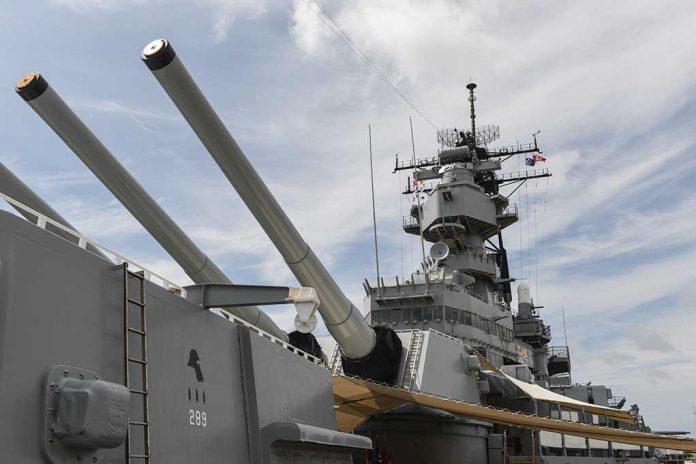
The Pentagon’s decision to withdraw 700 Marines from Los Angeles has left many questioning the necessity and legality of their deployment in the first place.
At a Glance
- 700 U.S. Marines deployed to Los Angeles have been ordered to withdraw.
- The deployment was initially in response to protests over immigration policies.
- California officials opposed the military presence from the start.
- Legal questions remain regarding the use of military forces in domestic affairs.
A Controversial Deployment
In early June 2025, President Donald Trump, determined to assert federal authority, ordered 700 U.S. Marines and nearly 4,000 National Guard soldiers into Los Angeles. The move came amidst escalating protests triggered by aggressive federal immigration crackdowns and ICE raids in the city. The protests, fueled by opposition to federal immigration policies, led to a controversial military presence, which was ordered against the objections of California Governor Gavin Newsom and Los Angeles Mayor Karen Bass.
The deployment of active-duty Marines, a rare and contentious action, drew national attention. Deployed to safeguard federal buildings like the ICE office, the military forces were a symbol of federal overreach for many. This unprecedented use of military personnel in a major U.S. city without invoking the Insurrection Act raised eyebrows and legal queries. Citing constitutional authority, the administration bypassed conventional legal frameworks, leaving experts and citizens alike questioning the legal foundation of such a decision.
Political Tensions and Public Backlash
President Trump’s memorandum on June 7, authorizing the federalization of forces, sparked intense political debate. Arriving on June 9, the troops faced a city already tense with anti-immigration protests. While the Pentagon, under spokesperson Sean Parnell, justified the military presence as a measure to restore order, California’s leaders saw it as an unnecessary show of force. Governor Newsom and Mayor Bass were vocal in their opposition, emphasizing state sovereignty and local governance as critical components of American democracy.
Communities in Los Angeles, particularly those directly affected by immigration policies, felt the brunt of this federal intervention. The presence of armed forces in a civilian setting only served to heighten tensions, with many seeing it as an affront to civil liberties. Veterans’ groups and local leaders called for the withdrawal of troops, arguing that military forces should not be used to police civilians.
Unresolved Legal and Political Questions
The withdrawal of the Marines on July 21, 2025, marks the end of a contentious chapter, but leaves behind a slew of unresolved issues. The legal ambiguity of deploying active-duty military without invoking the Insurrection Act will likely spark further legal scrutiny. Legal experts from institutions like the Brennan Center for Justice have already labeled the president’s authority in this instance as “legally dubious.” The potential for future legal challenges looms large, as courts have yet to rule definitively on the matter.
Beyond the legal implications, this episode has strained federal-state relations, raising questions about the extent of presidential power in domestic crises. The decision to deploy military forces in response to civil protests sets a precarious precedent, one that may influence future government actions in similar situations. Public trust in federal and local institutions may suffer as a result, with citizens left to wonder about the balance between security measures and civil liberties.



